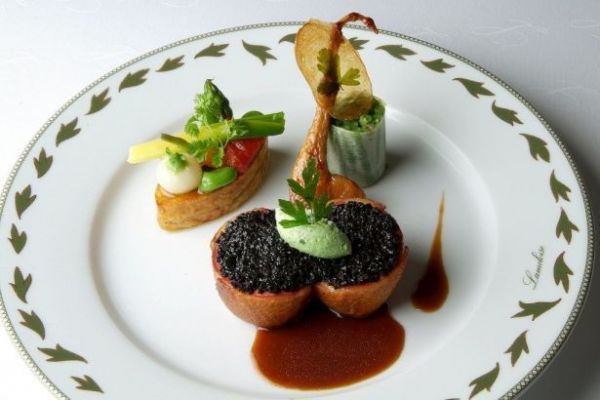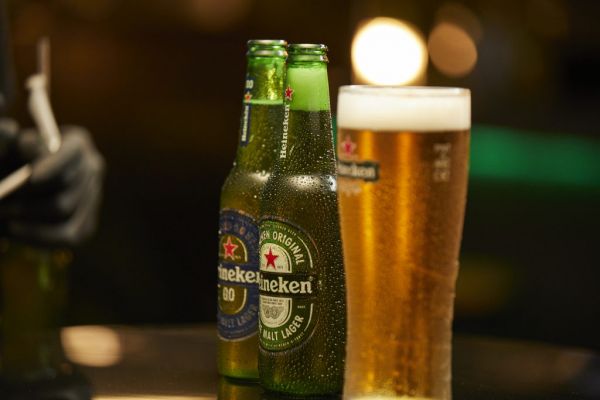You might wait months for a table at Noma, the four-time winner of the World’s 50 Best Restaurants award, and pay 1,900 kroner ($285) for a 16-course tasting menu featuring dishes such as moss cooked in chocolate.
Or, as of last week, you have the option of popping into 108 restaurant next door in Copenhagen, where Noma alumnus Kristian Baumann is serving accessible dishes starting below 100 kroner. (His business partner, Rene Redzepi of Noma, doesn’t cook at 108.)
And the great thing is that 108 doesn’t feel second-best. In fact, the buzzy dining room is more fun than at Noma, where the friendliness of the staff never entirely dispels the sense you are in a gastronomic temple that pushes culinary boundaries as insistently as a drug dealer with crack.
Don't get me wrong: I love Noma, which is worth the money and worth the wait. But you can have a great evening at 108, with fabulous, adventurous food and unusual wines to match.
The menu at 108 is short and appears simple: There were seven mains—with options such as cured mackerel and braised oxtail—and three desserts when I visited on July 30, two days after the official opening. But don’t be deceived: Considerable work has gone into each dish and Baumann, 29, is a chef to watch.
He cooks with the sensibility he developed at Noma, spending time foraging in the countryside before returning to the kitchen to do the fermenting, pickling and smoking that is at the heart of the cuisine. But he is also in touch with his Korean roots.
He was born in Seoul, then adopted when he was 4 months old by Danish parents who raised him in the village of Ganløse, outside Copenhagen, while being sure to expose him to Korean culture.
“They used to take me to all these different gatherings, and they showed me the culture, and they showed us rice, bibimbap and kimchi, and all these different things,” he says. “But we went to my grandmother’s on Sundays, and we had pork roast, boiled potatoes and gravy.”
The plates at 108 are are unfussy, with a stripped-down look that might owe something to the time Baumann spent in Japan with Noma. But this is not simple food. Take the cured mackerel (125 kroner) for example.
The Danish fish is filleted and covered in pine salt for an hour before being washed in homemade celery vinegar. It is sliced and topped with salted gooseberries from last year and a little bit of seaweed, then served with an oil made from foraged spruce wood. This dish is salty and sweet, with a touch of acidity and layers of flavor that unfold on your tongue.
And then there is the braised oxtail (100 kroner) which looks like a donut and is a cross between æbleskiver, a Danish pastry served with jam at Christmas, and takoyaki, a Japanese snack. The oxtails are braised and then seasoned with shallots, coriander and lemon thyme. They are glazed with barley (fermented at Noma) and topped with pine needles. You start lightly crunching into them, tasting the forest and sweetness, and then get knocked back with a big umami hit of the savory meat.
Other dishes include raw lamb with last year’s pickles—a Nordic steak tartare—and caramelized milk skin, a pancake that you wrap around grilled pork belly and a salad of cress and wasabina, a mustard-flavored Asian leaf.
The desserts are equally inventive, including a cone made from leftover sourdough that is filled with toasted barley ice cream, along with an oil made out of the barley, plus blackcurrants and topped with hazelnuts.
The service is informal yet attentive, and you could have a very good time without even getting stuck into the wines, which range in price from 300 kroner to 850 kroner a bottle.
The idea of 108 is that people should be able to wander in and just have a dish or two. Walk-ins are welcome and reservations aren’t taken months in advance. But my guess is that this neighborhood restaurant may become an international destination.
Better get there fast.
Article by Richard Vines, chief food critic at Bloomberg.









